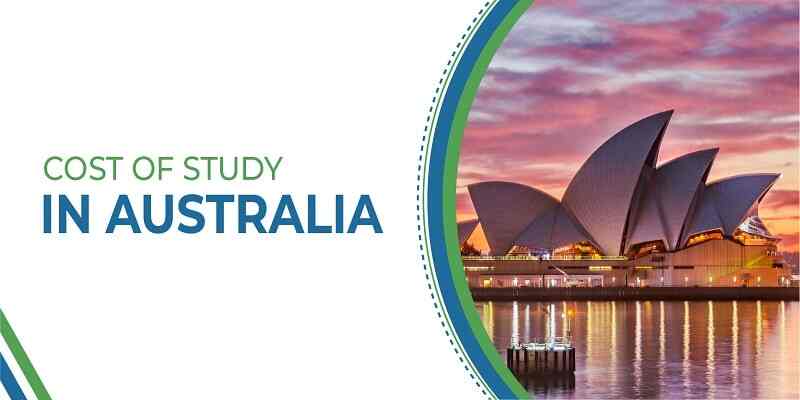Thanks to its high-quality education system, multicultural environment, and stunning landscapes, Australia has long been a popular destination for international students. However, the financial commitment required to study in Australia can be significant. This article delves into the various aspects of university fees for international students in Australia, exploring tuition costs, living expenses, scholarships, and other financial considerations.
Tuition Fees
Tuition fees for international students in Australia vary widely depending on the university, course, and level of study. On average, international students can expect to pay the following annual tuition fees:
- Undergraduate Courses: AUD 20,000 to AUD 45,000.
- Postgraduate Courses: AUD 22,000 to AUD 50,000.
- Doctoral Degrees: AUD 18,000 to AUD 42,000.
These figures are indicative and can differ based on the specific field of study. For instance, degrees in medicine and related fields are generally more expensive compared to courses in humanities or social sciences.
Breakdown by Field of Study
- Humanities and Arts: These courses are among the least expensive, with annual fees ranging from AUD 20,000 to AUD 33,000.
- Business and Management: Annual tuition for these courses generally falls between AUD 22,000 and AUD 40,000.
- Engineering and Technology: Engineering programs tend to be more costly, with fees ranging from AUD 30,000 to AUD 48,000 per year.
- Medicine and Dentistry: These are the most expensive programs, with tuition fees often exceeding AUD 60,000 per year.
Additional Fees
Beyond tuition, international students must also consider additional fees, which include:
- Student Services and Amenities Fee (SSAF): This fee, which supports non-academic services, ranges from AUD 150 to AUD 300 annually.
- Course Materials and Equipment: Costs for books, software, and equipment can range from AUD 500 to AUD 1,000 per year.
- Overseas Student Health Cover (OSHC): Health insurance is mandatory for international students, costing between AUD 450 and AUD 600 per year.
Living Expenses
The cost of living in Australia varies significantly depending on the city and lifestyle. Major cities like Sydney and Melbourne are more expensive compared to smaller cities and regional areas. On average, international students should budget for the following living expenses:
- Accommodation: AUD 10,000 to AUD 22,000 per year.
- Groceries and Eating Out: AUD 5,000 to AUD 7,000 per year.
- Public Transport: AUD 500 to AUD 1,200 per year.
- Utilities: AUD 500 to AUD 1,000 per year.
- Miscellaneous (entertainment, clothing, etc.): AUD 2,000 to AUD 4,000 per year.
Scholarships and Financial Aid
To alleviate the financial burden, various scholarships and financial aid options are available for international students. These include:
- Australian Government Scholarships:
- Australia Awards: Funded by the Department of Foreign Affairs and Trade, these awards cover full tuition fees, return air travel, and a contribution to living expenses.
- Research Training Program (RTP): Provides funding for research master’s and PhD students, covering tuition fees and a living allowance.
- University-Specific Scholarships:
- Most universities offer scholarships based on academic merit, research potential, or specific fields of study. Examples include the University of Melbourne’s International Undergraduate Scholarship and the University of Sydney’s International Research Scholarship.
- External Scholarships:
- Various organizations and foundations also provide scholarships, such as the Fulbright Program for U.S. students or the British Council’s scholarships for UK students.
Part-Time Work
International students in Australia on a student visa are permitted to work up to 40 hours per fortnight during the academic term and unlimited hours during vacation periods. This can help students manage their living expenses. Typical part-time jobs include positions in retail, hospitality, and administrative roles within universities. The minimum wage in Australia is AUD 21.38 per hour as of 2024, which can significantly offset living costs.
Financial Planning Tips
- Budgeting: It is crucial for students to create a detailed budget accounting for all expenses, including unforeseen costs.
- Banking: Opening a local bank account can help manage finances more effectively and avoid international transaction fees.
- Cost-Cutting Measures: Students can save money by sharing accommodation, using public transport, cooking at home, and taking advantage of student discounts.
Conclusion
Studying in Australia can be a transformative experience, offering high-quality education and opportunities for personal growth. However, it requires careful financial planning and consideration of the various costs involved. By understanding tuition fees, living expenses, and available financial aid, international students can make informed decisions and manage their finances effectively during their studies in Australia. While the costs are significant, the potential benefits of an Australian education—ranging from academic excellence to cultural enrichment—can make the investment worthwhile.
